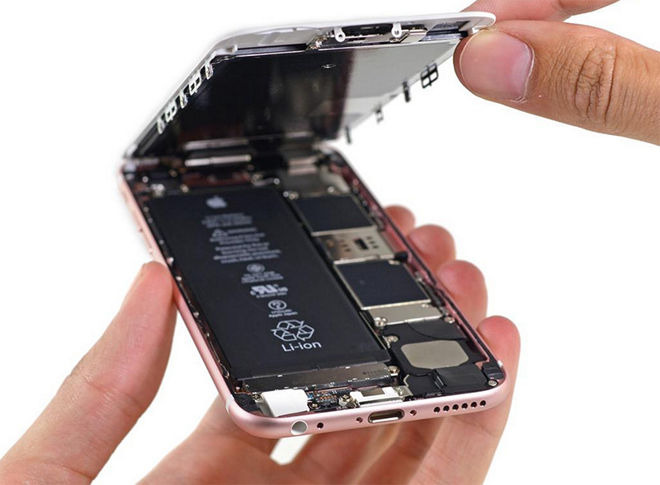An Amnesty International investigation claims child labor is being used to acquire cobalt in the Democratic Republic of the Congo, a mineral used in the production of lithium-ion batteries purchased by tech companies like Apple.
The report, published on Monday by Amnesty and DPR non-profit Afrewatch, claims children as young as seven years old are mining for cobalt that makes its way into the supply chains of high-tech companies including Apple, Samsung, Sony and Microsoft, as well as electric car makers like Daimler and Volkswagen.
According to Amnesty, traders purchase mined minerals from smaller cobalt producers and sell it to Congo Dongfang Mining (CDM), a subsidiary of Chinese mineral purveyor Zhejiang Huayou Cobalt Ltd. (Huayou Cobalt). From there the cobalt moves on to three battery manufacturers in China and South Korea, ultimately trickling down to consumer products sold by major brands.
The non-profit groups conducted interviews with 87 current and former cobalt miners, including 17 children, from five small mines in the southern DRC last year, the report said. As cobalt is not defined as a "conflict mineral" under US standards, corporations are not obliged to publish supply chain transparency reports regarding mining sources, meaning there is little to no regulation of the worldwide market. In practice, companies are left to police their own suppliers.
In reaction to the findings, Amnesty is calling on multinational corporations using lithium-ion batteries to conduct basic human rights due diligence and audit their respective supply chains.
For its part, Apple told Amnesty it was unable to determine the origin of the cobalt used in its batteries, nor could the company confirm a connection to CDM/Huayou Cobalt. Other manufacturers offered similar statements, saying it is either difficult or impossible to trace material sources back to DRC.
"Underage labour is never tolerated in our supply chain and we are proud to have led the industry in pioneering new safeguards," Apple said in a statement to the BBC. "We are currently evaluating dozens of different materials, including cobalt, in order to identify labour and environmental risks as well as opportunities for Apple to bring about effective, scalable and sustainable change."
As the world's largest tech company, Apple has been under media scrutiny for years, especially when it comes to human rights violations. Taking a proactive position, Apple has built out a comprehensive supply chain monitoring system, with a stringent set of guidelines, yearly transparency reports and special funding initiatives to ensure adequate living conditions for overseas workers. For example, the company looked into underage worker claims in 2010, while subsequent Supplier Responsibility Reports uncovered further abuse in 2013. As a result of its findings, Apple imposed sanctions on or ceased to do business with offending firms.
When a supplier is found in violation of underage hiring policies, Apple forces the company to pay the employee to return home, finance an education selected by the worker or their family, continue to pay out wages and offer them a job when of legal working age. With substantial leverage as the world's largest tech company, Apple is in a position to demand rigid adherence to its supply chain regulations.
 Mikey Campbell
Mikey Campbell







-m.jpg)






 Wesley Hilliard
Wesley Hilliard
 Marko Zivkovic
Marko Zivkovic

 Malcolm Owen
Malcolm Owen

 Amber Neely
Amber Neely











55 Comments
(Deleted. Why bother...)
and who the fuck cares? So, if Apple buy battery from this manufacturer, Apple are responsible for their labor hires? What the fcuk is that? If I eat rice imported from Vietnam, I'm responsible for these 12-14 year-old farmers who work 10 hrs+ a day back in the countryside in Vietnam? BS.
Apple is going way out of their way, and yet there is Apple thrown right in front of everyone. With really, ZERO proof of Apple doing anything wrong.
This is somehow Apple's fault? What crap. This "let's blame Apple" routine practiced by the very left leaning organizations is as big an extortion game as the class-action lawyers try to run on Apple.
Let's bring these jobs back to the U.S.!